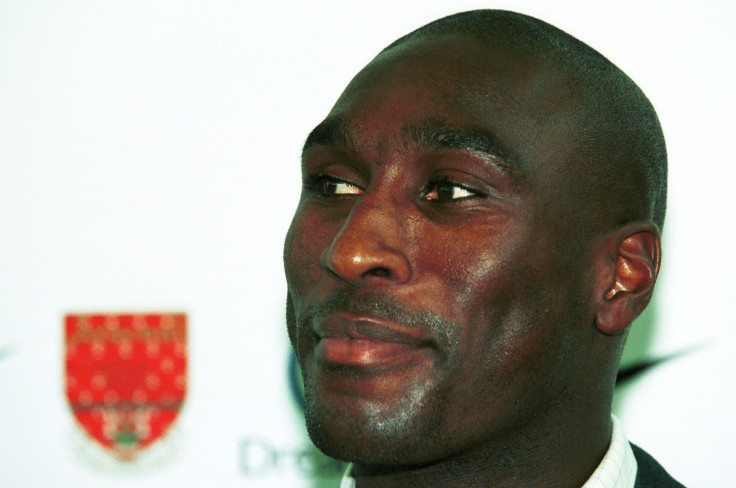Sol Campbell: How the most controversial transfer in English football unfolded

In 2001, Richard Wright was riding on the crest of a wave. The Ipswich Town goalkeeper was already an England international, winning his first cap against Malta the previous year. The Suffolk-born stopper was also carving out a reputation as a penalty saving specialist – the most sought-after trait of any aspiring goalkeeper's repertoire.
Saving from Darren Barnard to help Ipswich beat Barnsley in the Division One play-off final, Wright also kept out a spot kick on his international debut from David Carabott. For the 2000 European Championship, he was a non-playing member of the squad behind David Seaman and Nigel Martyn.
Already identified as the long-term successor to Seaman for England, Wright was soon called upon to be the heir to the four-time FA Cup winning 'keeper at club level, with Arsenal on the brink of signing him from boyhood club Ipswich.
At 12pm on 3 July, journalists were called to an announcement at Arsenal's London Colney training ground, on the assumption that Wright would be sealing his move to Highbury. What came to pass was the confirmation of one of the most memorable transfers in English football history, which is more than can be said for Wright – his career soon to become a distant memory.
Sol Campbell was a key figure at Spurs
Sol Campbell was not born to play for Tottenham Hotspur. Born in Plaistow with Jamaican parents and beginning his career with West Ham United, Campbell is hardly what can be regarded as born and bred on the Seven Sisters road.
In a Spurs team which for long periods of their 1990s existence in the Premier League languished near the bottom, flirted with relegation and rotated managers like Henry VIII interchanged wives, Campbell was the rock that held the rickety north London ship together.
Soon adopted by supporters as one of their own, Campbell became adored by the home faithful and regarded as a key figure in the Tottenham team, often becoming the hero of close shaves. In 1999, he became the first black captain to lift a major trophy at Wembley after League Cup victory over Leicester City.
A far cry from the running commentary that accompanies transfer stories every season, Campbell slipping into the final 12 months of his deal at Tottenham was not seen as the drama that now attaches itself to contractual uncertainty.
On several occasions, Campbell confirmed he would remain in north London, calming fears he would become the latest exponent of the Bosman ruling and leave for a domestic or European rival.
In May, he rejected a new contract after submitting a clause-laden £20m, three-year proposal to Tottenham, who with barely the backing of Premier League stability passed at their now heroic defenders unrealistic demands. "Ridiculous and unacceptable" was how then executive vice-chairman David Buchler described the negotiations.
Worst nightmare for a Tottenham fan
But if Tottenham fans thought their worst fears had been realised with the imminent departure of their captain, now attracted by the lure of top tier European football, they were unprepared for the nightmare that would follow.
Though Barcelona, Chelsea, Liverpool and Real Madrid were among the clubs linked with Campbell, it would be arch rivals Arsenal who would secure the deal, confirming the agreement days after the official opening of the transfer window for a pittance.
Despite the era of the mercenary footballer having only just begun, Campbell was immediately labelled as the acquisitive player of his time in the view of the media and fans across the country. In the eyes of Spurs fans, he was simply known as Judas.
The salt would be kneaded into the wound over the next five years of Campbell's first spell at Arsenal, where after he lived under rations of success at White Hart Lane, platefuls of silverware came his way. Two Premier League titles, three FA Cups and a Champions League final appearances were the results of his labours.
Campbell's move across north London still festers within Spurs fans and have been expressed in a distasteful manner that goes beyond the realm of football. Four fans were banned from all football grounds in England and Wales after chanting songs that included homophobic references towards the player.
Football fans have the longest of memories and the eventsof 3 July and what followed, though Mo Johnston and Luis Figo may disagree, make the agreement among the most infamous in the history of the game.
© Copyright IBTimes 2025. All rights reserved.






















